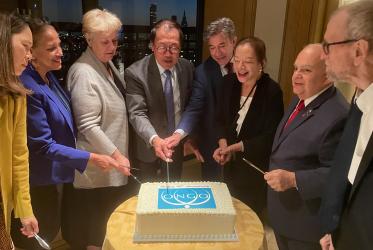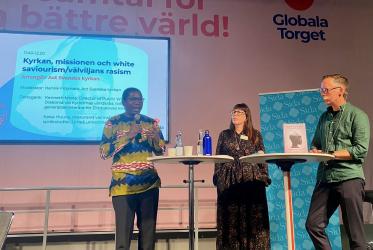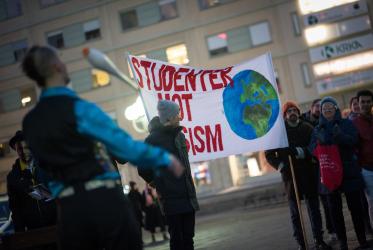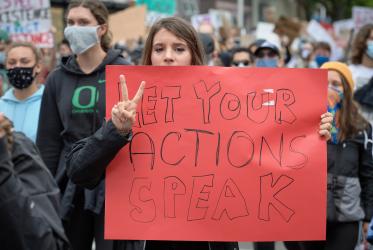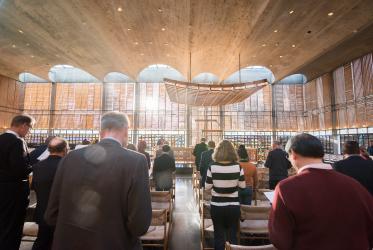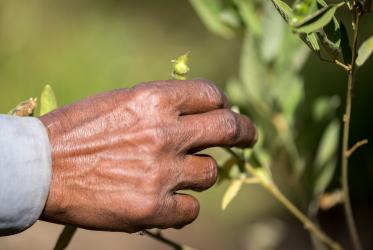Displaying 1 - 20 of 28
ACT Alliance general secretary: “equity is not negotiable”
26 September 2023
WCC posts job openings for leadership staff
27 January 2022
WCC invites webinar on ’Racism, Land and Food’
09 December 2021
A faith-based, holistic approach to HIV and AIDS-care
13 March 2019
Faith and HIV treatment go hand in hand
06 March 2019
Turning mercy and compassion into action
04 March 2019
On the journey to HIV – bridging gaps, debunking myths
21 February 2019

